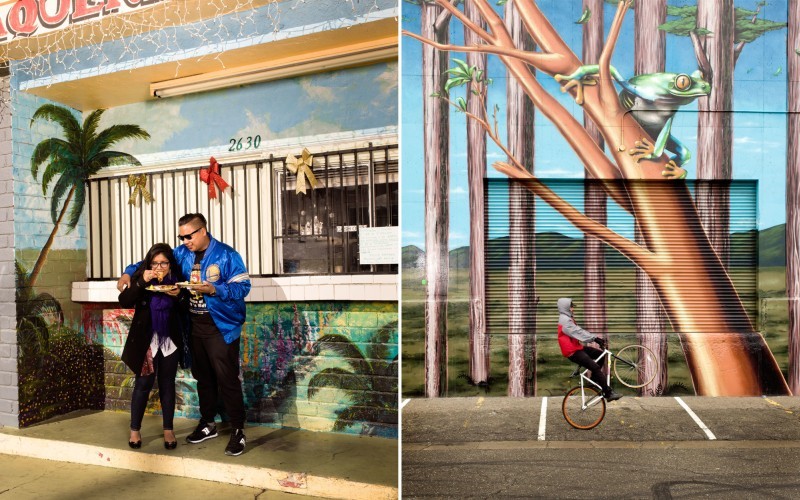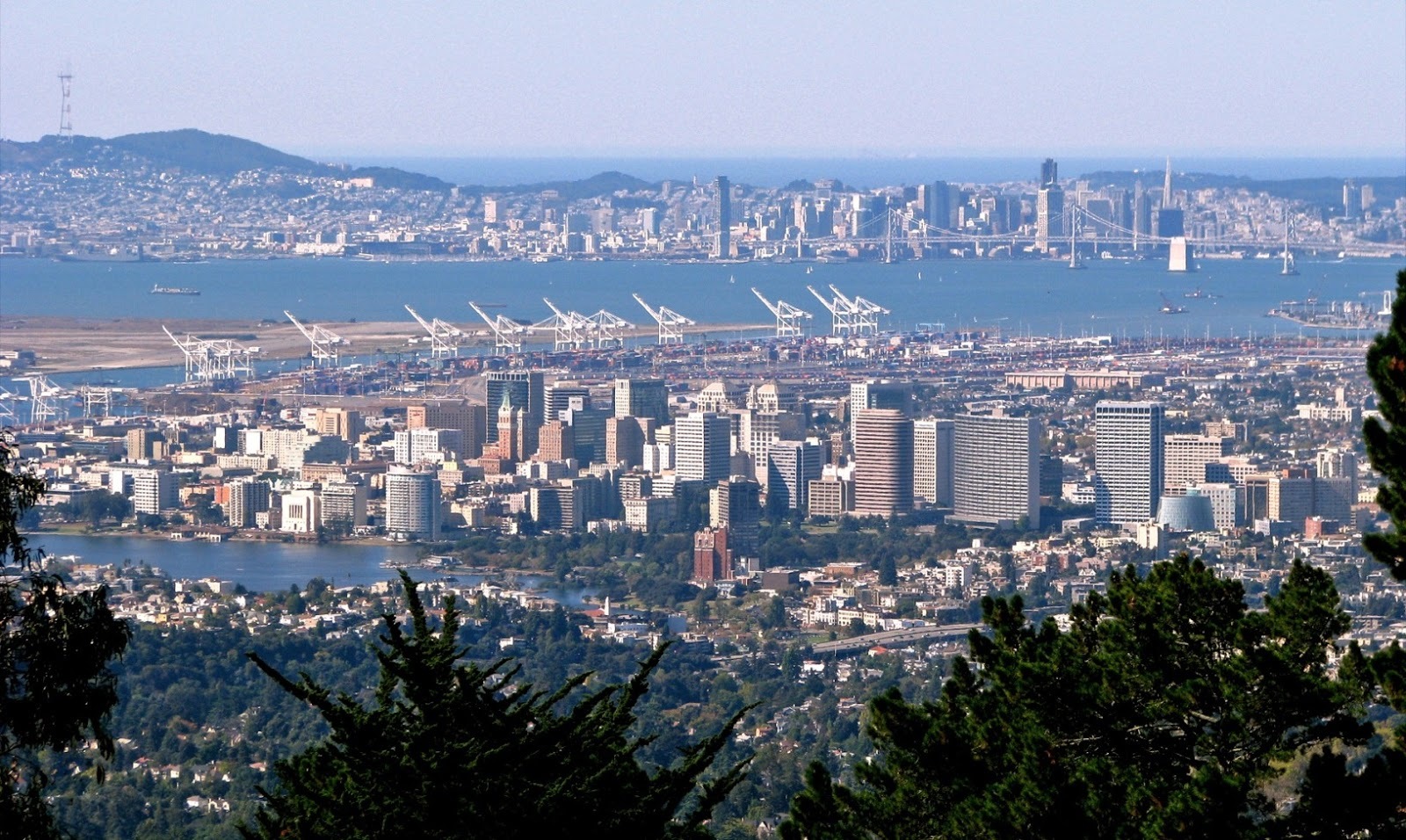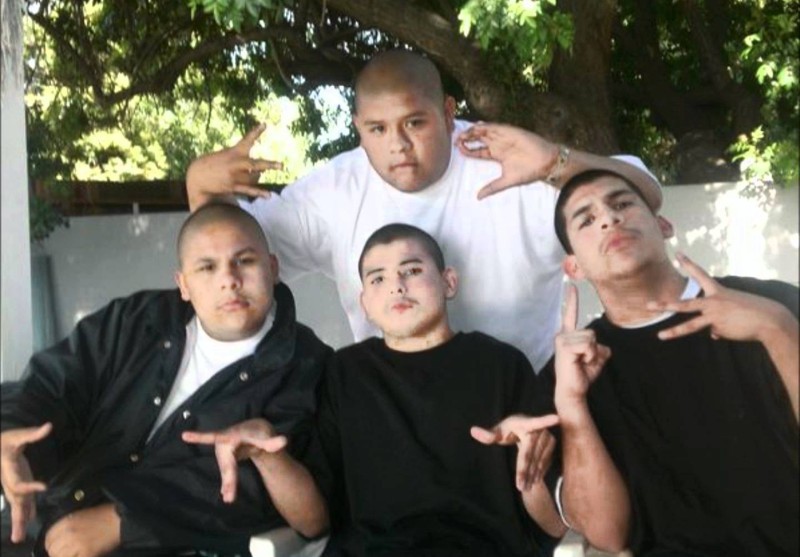Identified the first US city for the experiment with the payment of unconditional basic income
During the pilot project, important information will be collected for a large-scale study: an order of payment of an AML is defined, procedures for collecting data are developed, methods of random sampling of the population for the distribution of an AML are established, etc.

City of social inequality: Auckland, pieces. California
In the very near future, the United States will join the number of progressive countries that conduct experiments with unconditional basic income (AML) - regular fixed payments for all citizens of a country, regardless of their income level and working status.
')
The venture fund Y Combinator is going to conduct a large, long-term and large-scale study of the impact of AML on society. This five-year study will certainly confirm or refute the ideas and results obtained in other countries, on increasing the happiness and financial well-being of citizens receiving AML, increasing labor productivity, reducing the bureaucracy, reducing poverty and crime, reducing healthcare costs, etc.
Sam Altman, President of Y Combinator Foundation, has always adhered to a model similar to AML in financing startups: in exchange for a 7% stake, a start-up gets money without conditions and can dispose of it as he pleases. As the experience of Reddit, Dropbox, Airbnb and hundreds of other companies has shown, this model really works. People do not give up work at all, do not lie on the couch and do not spend on drink their money. Quite the contrary, having received financial guarantees, getting rid of obligations and the need to work in the office on a schedule from 9:00 to 18:00, almost everyone starts working even more than before. And more importantly - more efficiently than from a stick.
Y Combinator announced plans to conduct a large-scale experiment in January 2016 . Sam Altman expressed confidence that behind this scheme is the future, especially against the background of the disappearance of traditional jobs due to technological progress, the spread of robots and artificial intelligence.
Before the large-scale American experiment, Y Combinator decided to conduct a short-term pilot study, and yesterday he decided on the city where it would be: Oakland .

Auckland is a city located in Alameda County (California, USA) with a population of 390,724 according to the 2010 census statistics. It is the third most populated city in the San Francisco Bay Area after San Jose and San Francisco.
34.5% of the population are whites, 28% are African Americans, 16.8% are Asians. The crime rate in some areas is very high. According to the FBI, in 2005, Oakland ranked first in homicide rates in California and tenth in the United States among cities with a population of more than 250,000. Although in other areas, wealthy Americans live in peace: the regions are constantly patrolled and there is little crime
“Auckland is a city of great social and economic diversity,” admits Sam Altman, “here is where wealth is concentrated, and there is considerable inequality. We think that these traits make it a good place to explore how unconditional basic income will work in our pilot project. ”
During the project, important information will be collected for a large-scale study: the procedure for payment of AML is defined, procedures and methods for collecting and analyzing data are developed, methods of random sampling of the population for distribution of AML, etc. are established.
Y Combinator initially announced a competition for the post of the head of a research project: “We received more than 1,000 resumes for this position, including from full-time professors at Oxford, Columbia University and Harvard,” writes Sam Altman. As a result, Elizabeth Rhodes, Ph.D. from the University of Michigan, who had previously led a similar project to provide health and education in the slums of Nairobi, was chosen as the AML research manager.
Participants in the pilot project in Auckland will receive an AML payment without any conditions. They will be able to manage the money and their time at their discretion: continue to work further or quit, engage in self-education, go as volunteers, move to another country - whatever. "Unconditional basic income promotes the idea of freedom, and we want to see how people manage this freedom."

Auckland residents
If the pilot project is successful, a large-scale large-scale study will begin. If not, Y Combinator is going to explore other approaches to paying an AML.
The idea of the unconditional basic income (BOD) as a radical form of social dividends was formulated by Thomas Payne as early as 1795, she was remembered at the end of the 20th century, but she became really popular about a year ago. Recently, several countries have announced experiments with the AML. In a few days, Switzerland will hold a referendum on unconditional basic income. Experiments with social dividends in 2016-2017 are planned by the Netherlands , Finland and Canada . Soon, New Zealand and the USA may follow their example.
Unfortunately, some countries of the world categorically do not accept the humanitarian idea of AML, but introduce the opposite idea - a tax for the unemployed . For example, in Belarus, the unemployed have already begun to pay $ 250 per year to the treasury. The experience of the neighboring country is studied by the Ministry of Labor of the Russian Federation.
But if you make long-term plans, then the AML seems like a viable idea: “One of the reasons why it works, in our opinion, is that technological progress should lead to an abundance of resources,” writes Sam Altman. “Although unconditional basic income today seems to be financially difficult to implement, in a world where technology replaces people in the workplace and AML becomes necessary, technological progress and an abundance of resources will drastically reduce the cost of living.”
Y Combinator believes that people will continue to work anyway, but now they will be able to devote time to projects that they are really interested in. There they will apply their strength more effectively.
The next few months, Y Combinator will spend on the study of the details of the project. Already established dialogue with the municipal authorities of Auckland and representatives of local communities to develop the most optimal way to distribute AML.

City of social inequality: Auckland, pieces. California
In the very near future, the United States will join the number of progressive countries that conduct experiments with unconditional basic income (AML) - regular fixed payments for all citizens of a country, regardless of their income level and working status.
')
The venture fund Y Combinator is going to conduct a large, long-term and large-scale study of the impact of AML on society. This five-year study will certainly confirm or refute the ideas and results obtained in other countries, on increasing the happiness and financial well-being of citizens receiving AML, increasing labor productivity, reducing the bureaucracy, reducing poverty and crime, reducing healthcare costs, etc.
Sam Altman, President of Y Combinator Foundation, has always adhered to a model similar to AML in financing startups: in exchange for a 7% stake, a start-up gets money without conditions and can dispose of it as he pleases. As the experience of Reddit, Dropbox, Airbnb and hundreds of other companies has shown, this model really works. People do not give up work at all, do not lie on the couch and do not spend on drink their money. Quite the contrary, having received financial guarantees, getting rid of obligations and the need to work in the office on a schedule from 9:00 to 18:00, almost everyone starts working even more than before. And more importantly - more efficiently than from a stick.
Y Combinator announced plans to conduct a large-scale experiment in January 2016 . Sam Altman expressed confidence that behind this scheme is the future, especially against the background of the disappearance of traditional jobs due to technological progress, the spread of robots and artificial intelligence.
Before the large-scale American experiment, Y Combinator decided to conduct a short-term pilot study, and yesterday he decided on the city where it would be: Oakland .

Auckland is a city located in Alameda County (California, USA) with a population of 390,724 according to the 2010 census statistics. It is the third most populated city in the San Francisco Bay Area after San Jose and San Francisco.
34.5% of the population are whites, 28% are African Americans, 16.8% are Asians. The crime rate in some areas is very high. According to the FBI, in 2005, Oakland ranked first in homicide rates in California and tenth in the United States among cities with a population of more than 250,000. Although in other areas, wealthy Americans live in peace: the regions are constantly patrolled and there is little crime
“Auckland is a city of great social and economic diversity,” admits Sam Altman, “here is where wealth is concentrated, and there is considerable inequality. We think that these traits make it a good place to explore how unconditional basic income will work in our pilot project. ”
During the project, important information will be collected for a large-scale study: the procedure for payment of AML is defined, procedures and methods for collecting and analyzing data are developed, methods of random sampling of the population for distribution of AML, etc. are established.
Y Combinator initially announced a competition for the post of the head of a research project: “We received more than 1,000 resumes for this position, including from full-time professors at Oxford, Columbia University and Harvard,” writes Sam Altman. As a result, Elizabeth Rhodes, Ph.D. from the University of Michigan, who had previously led a similar project to provide health and education in the slums of Nairobi, was chosen as the AML research manager.
Participants in the pilot project in Auckland will receive an AML payment without any conditions. They will be able to manage the money and their time at their discretion: continue to work further or quit, engage in self-education, go as volunteers, move to another country - whatever. "Unconditional basic income promotes the idea of freedom, and we want to see how people manage this freedom."

Auckland residents
If the pilot project is successful, a large-scale large-scale study will begin. If not, Y Combinator is going to explore other approaches to paying an AML.
The idea of the unconditional basic income (BOD) as a radical form of social dividends was formulated by Thomas Payne as early as 1795, she was remembered at the end of the 20th century, but she became really popular about a year ago. Recently, several countries have announced experiments with the AML. In a few days, Switzerland will hold a referendum on unconditional basic income. Experiments with social dividends in 2016-2017 are planned by the Netherlands , Finland and Canada . Soon, New Zealand and the USA may follow their example.
Unfortunately, some countries of the world categorically do not accept the humanitarian idea of AML, but introduce the opposite idea - a tax for the unemployed . For example, in Belarus, the unemployed have already begun to pay $ 250 per year to the treasury. The experience of the neighboring country is studied by the Ministry of Labor of the Russian Federation.
But if you make long-term plans, then the AML seems like a viable idea: “One of the reasons why it works, in our opinion, is that technological progress should lead to an abundance of resources,” writes Sam Altman. “Although unconditional basic income today seems to be financially difficult to implement, in a world where technology replaces people in the workplace and AML becomes necessary, technological progress and an abundance of resources will drastically reduce the cost of living.”
Y Combinator believes that people will continue to work anyway, but now they will be able to devote time to projects that they are really interested in. There they will apply their strength more effectively.
The next few months, Y Combinator will spend on the study of the details of the project. Already established dialogue with the municipal authorities of Auckland and representatives of local communities to develop the most optimal way to distribute AML.
Source: https://habr.com/ru/post/372319/
All Articles